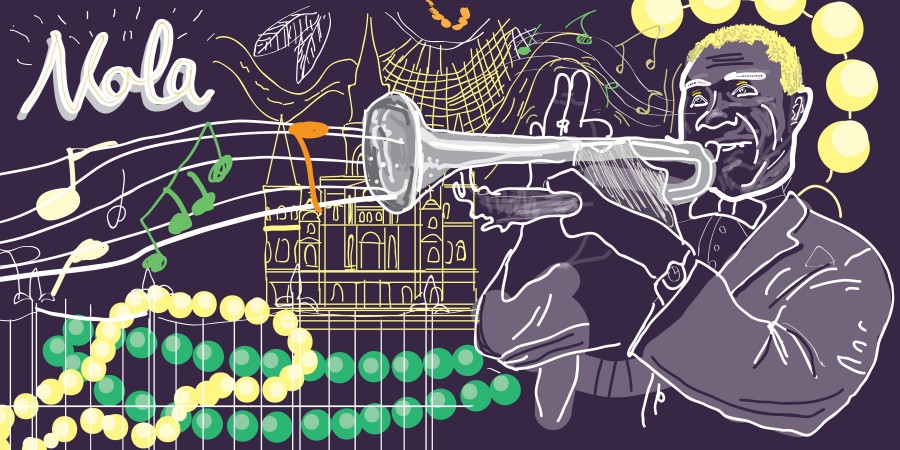With the advent of headphones, many students have come to depend on listening to music while studying, often without good reason. There are two reasons for using music to study.
The first is to drown out noise. Studying with headphones reduces the clamor of everyday life — the footsteps, shouting, squeaky chairs and loud doors — into one soft rhythm. Many distractions become one. Although the volume increases, the mind no longer has a dozen distinct noises prying it away from the task at hand.
The best demonstration I can give of this principle is the effect of an airplane’s engine during its flight. It roars incessantly, louder than the sounds any passenger could produce, yet it is easier to focus when the plane is in the air than when it is on the ground.
The whir of the engine is so powerful that it insulates passengers from one another, encasing each of them, as it were, in a bubble of white noise. The plane engine works for the same reason as music does, and I have no problem with those who use headphones to create that effect. As a matter of fact, I am one of them.
But music, if an improvement on most noises, is still a distraction. Its usefulness is less obvious in solitude, where it has nothing to replace or muffle. It can become not a lesser evil but an unnecessary one. This brings me to the next group of musical scholars.
These are students who use music for its own sake, who swear they cannot focus or get anything done without it. Their minds run on soft jazz. The invention of headphones was good for many of them, particularly those employed in busy work — that is, any task that demands no deep thought. The tunes help, or at any rate, make the work more interesting for anyone filling out a spreadsheet, finding the definitions for a list of terms or sifting through flashcards.
Writing, on the other hand, is a more complicated matter. Writers must be sensitive to the sound of their sentences, which music can pollute. Great prose depends on musicality. A prime example from “The Great Gatsby” by F. Scott Fitzgerald: “There was music from my neighbor’s house through the summer nights. In his blue gardens men and girls came and went like moths among the whisperings and the champagne and the stars.”
The second sentence, on account of its lyricism, simulates the music mentioned in the first. The loose syntax, together with the rhythm produced by the repetition of “the,” makes for a delightful sound when read aloud, like that of a pretty song.
Fitzgerald could not have achieved the same effect if he worded the second sentence like this: “In his blue gardens men and women came and went among whisperings, champagne, and stars.” The difference, to the eye alone, seems arbitrary. Those judgments belong to the ear, which is why writers should be wary of headphones, whose music prevents you from hearing the music on the page.
There are, however, many great authors who listen to music for this very purpose. Their pen feeds off the music like a dancer’s feet. Without it, their prose lacks rhythm. Younger writers should not attempt it, especially because they have yet to develop their own rhythm and style and could come to depend on an artificial aid for inspiration. You cannot fuse two art forms without mastering at least one of them.
As for students without literary ambitions, for whom writing is a sort of chore, listening to music is completely fine. Many diligent students dread essays, or if they like writing them, it is for the opportunity to show what they know, without any regard for style, for how the sentences sound to the ear. This is not a fault, but a mere matter of interest. They have no reason to worry about musicality, since their only goal with their writing is to get a good grade. For them, music can only enliven the process.
I am less open-minded when it comes to reading. Only with purely informational reading is music permissible. A medical student can read her textbook, or a history student his biography, with tunes to help along, without any loss. The same cannot be said for literary reading. A play, novel or short story should be read out of respect for the writer in a silent setting. The reader’s ear should be as closely tuned to the writer’s music as possible. To read poetry with music is to tour a museum with a blindfold.




